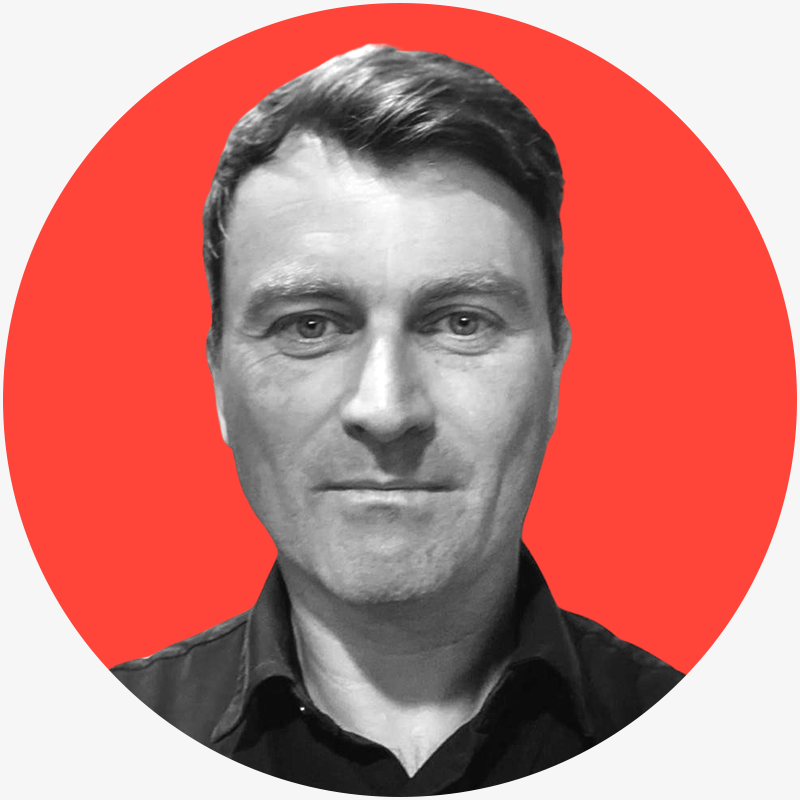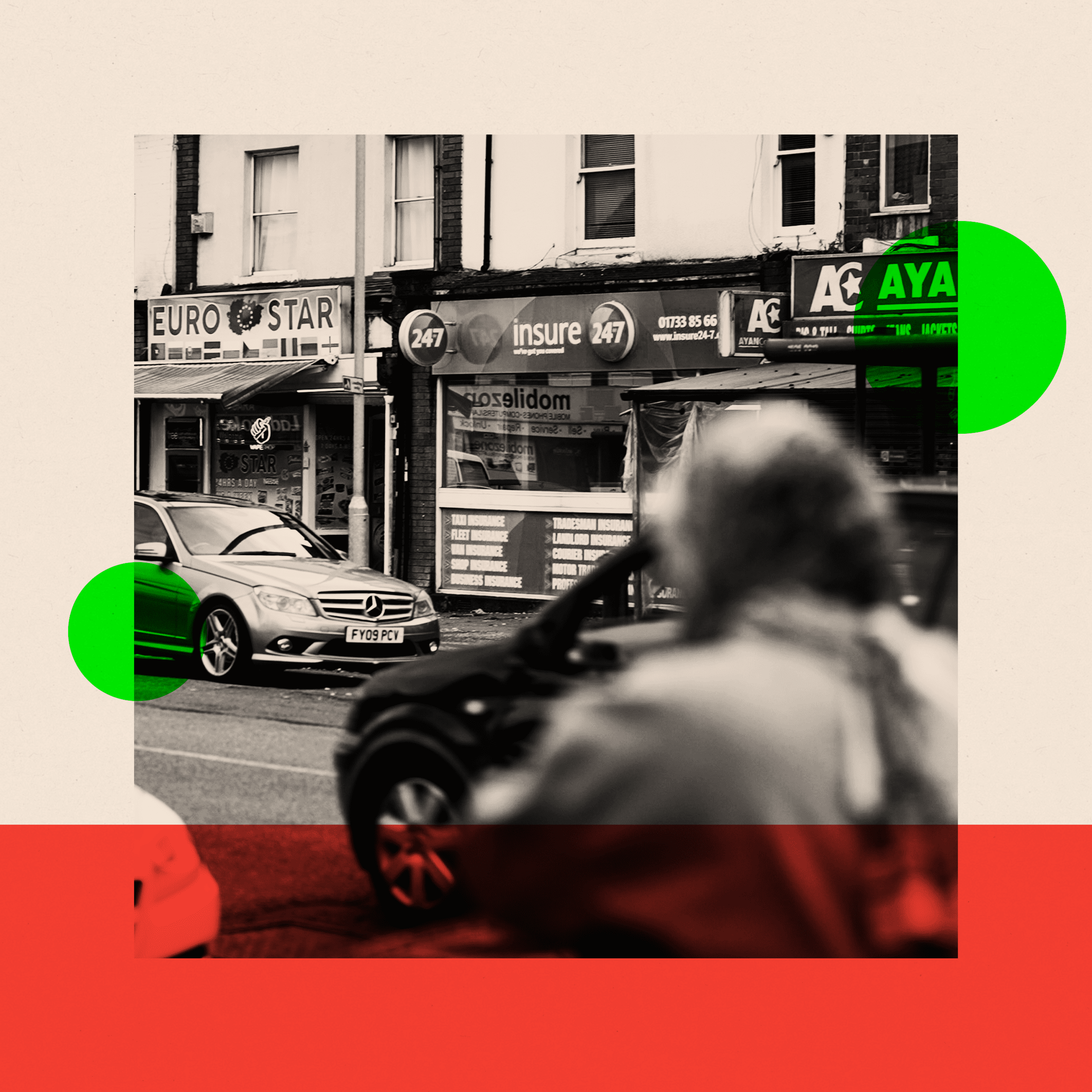
Mike and Graham have been collecting bins for four decades between them. Their patch includes Peterborough’s Lincoln Road, where Lithuanian restaurants vie for space with job agencies advertising new positions in Polish.
“It seems like every nationality lives here,” says Graham. “I don’t see much integration, they keep themselves to themselves.”
“They don’t respect our country,” he says.
Over a quarter of Peterborough’s population is foreign-born, well above the almost 17% average for England and Wales. A sense of disquiet over the change that can accompany immigration is hardly new, but it is what Graham says next that is perhaps more revealing. I ask if he’d stop further immigration.
“You can’t stop it,” says Graham. “You’d have an empty hospital.” If Graham is struggling to live with immigration, he’s also of the view that the country currently depends on it.
The BBC’s Your Voice, Your Vote project has heard from thousands of you about concerns over immigration. We spent several days in Peterborough talking to people about it, and again and again I heard concerns about social cohesion and pressure on public services caused by immigration - and not just from those who were born in the UK.
Watch: Peterborough residents speak about the impact of immigration
Net migration to the UK rose significantly after Brexit, peaking at 764,000 in 2022, and was an estimated 685,000 in 2023, according to the Office for National Statistics. An Ipsos survey of 3,000 people in February found 52% of people wanted immigration to be reduced.
Migration has been a high-profile issue in the campaign and there have been bad-tempered clashes between politicians offering very different visions of an issue that regularly tracks as one of the most important for voters., external
On the outskirts of Peterborough we visited the Ortons Shopping Centre, a busy place where discount stores mix with independent shops.
Sarah works for the NHS. She was born in the city and raised her children here. Immigration, she says, has made the city grow very quickly. “We don’t have the resources for everybody,” she tells me.
She reels off a list of pressure points: “The hospital, it’s hard to get accommodation in the city now, especially social housing and school places.” Her grandchildren, she says, have struggled to get a place in the schools closest to them.
These sound like common issues in most towns. “I don't think it's all down to immigration,” Sarah admits, “but I think it has had a major impact on them.”
We found Emma waiting with her son and toddler daughter buying fish and chips. Immigration is a big issue for her in this election.
She is on the council house waiting list, and gets housing benefit, but because of high private rental prices she has to top it up by hundreds of pounds every month.
“The new houses that were built were given to all the foreigners that were coming in,” she says.
In the past year, Peterborough council has bought 40 homes to be used by Afghan and Ukrainian refugees.
“It’s not fair, I’ve always worked my life,” she says. “I don’t like it, it makes me angry.”
Peterborough council says the demand for social housing exceeds supply, and that is prioritising those with the highest needs. The homes were bought for legal refugees, it points out, who have the right to live and work in the country.
These are hard choices for councils. The Institute for Fiscal Studies, an independent economics research institute, says Peterborough receives less funding for local services (that’s bin collections and adult and children’s care) and public health (drug and alcohol abuse) than it should do according to need. Places with growing populations can often find themselves falling victim to funding formulas from central government that do not take account of their recent growth.
Haji moved here as child about 50 years ago from Pakistan, and we met him in a traditional Pakistani sweet shop, where for £7 you can get a box full of treats.
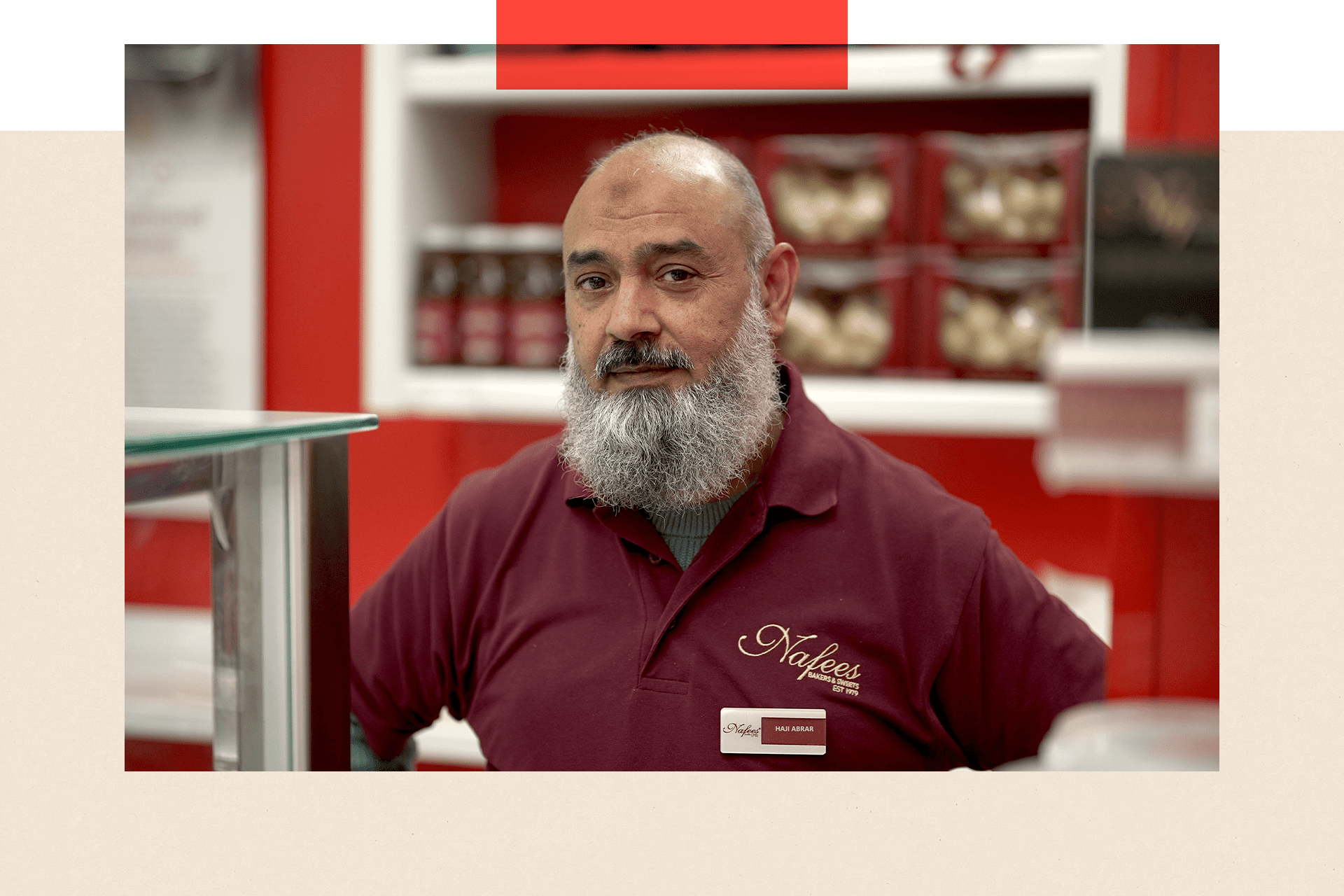
Haji says everyone should contribute
“We worked hard,” he says reflecting on his and his family’s contribution to Britain. “We paid our taxes, National Insurance contributions, the hospital, education system.” He pauses before adding “everything was brilliant”, with the emphasis on the was.
He says he is concerned about migration. “I think it is too much, to be honest, the country has too much on its plate.”
“People who don't contribute towards the system, I think they don't have the right to live here.”
The ONS says the increase in net migration is mostly down to non-EU citizens coming on work and study visas.
This is a key challenge for the Conservative and Labour parties who say they will bring down net migration: many of the people who come to the UK come to work.
That Ipsos research on attitudes to migration also showed little appetite for reducing the numbers of medics, care workers, fruit pickers, teachers, labourers or lorry drivers coming to the UK to work.
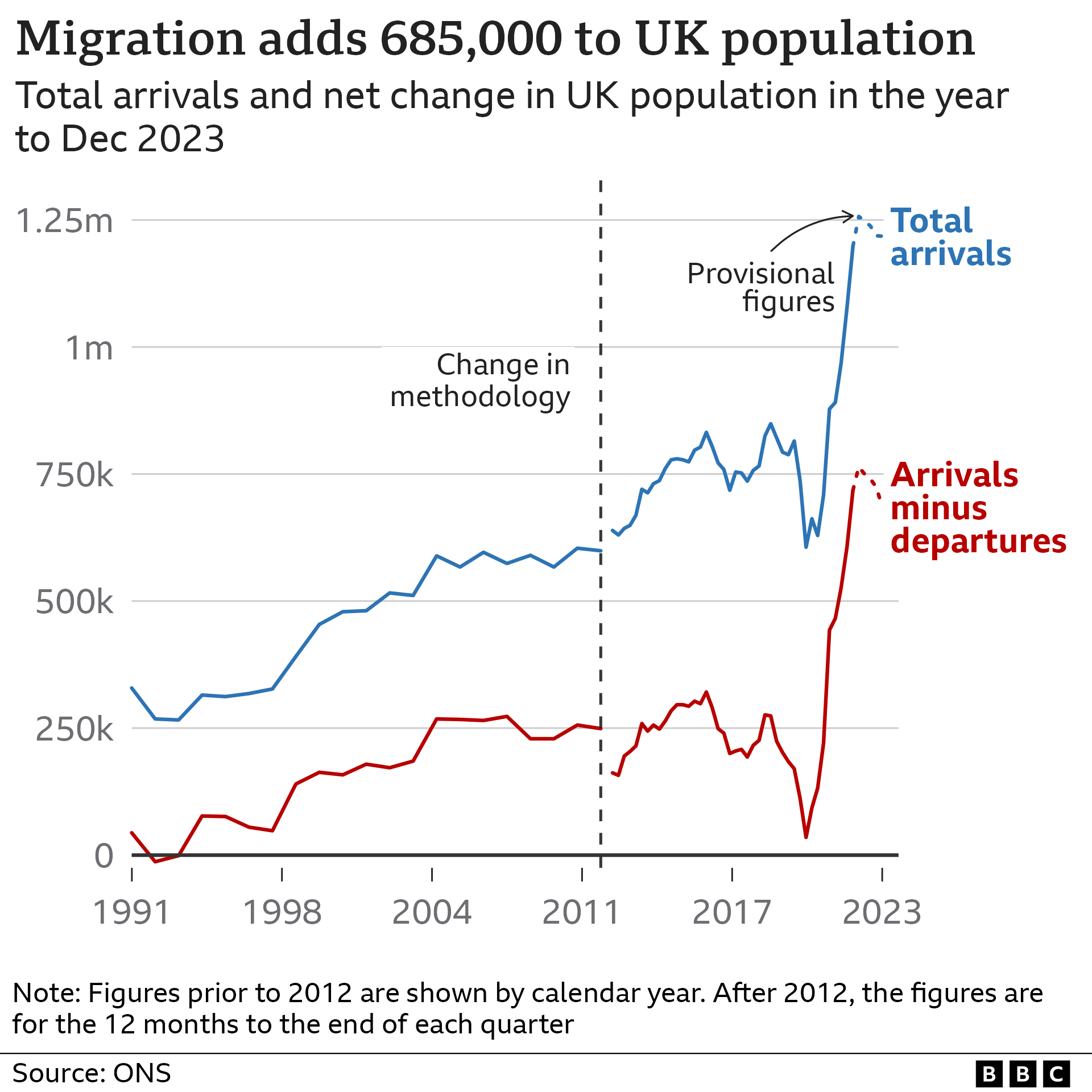
Significant numbers of people settle in London and the South East, but Peterborough is attractive because it is well connected by road and rail, and newcomers work in food packing and logistics jobs - the city is part of a transport, logistics and warehousing triangle that’s grown significantly in the past decade or so, mostly down to online shopping.
Care is also a sector with big demand for workers. PJ Care, which provides specialist neurological care for adults, says it has hired more than 32 people from overseas, and its recruitment manager tells me they would struggle without them.
One of their employees is Rejoice, from Malawi. She says she’s thriving, excelling at her job - but still, she’s worried about her future, “When you look at the news, it makes you feel scared. What will become of me?”
She’s watching the general election debate closely, as all parties pitch their plans on immigration. They have very different approaches.
The Conservatives want to reduce the number of economic migrants and introduce a cap, and want to press ahead with their policy of sending people who arrive on small boats to Rwanda.
Labour would scrap the Rwanda scheme and divert £75m pounds to a new border and security command. It has pledged to cut net migration and reduce the number of foreign born workers in sectors including construction, IT, social care, health and engineering.
The Liberal Democrats manifesto does not mention reducing immigration numbers. The party would abolish the current salary threshold for migrant workers in favour of what it calls a “merit-based” system. They would also end the recently introduced ban on foreign care workers bringing dependents to the UK and reverse the increase in income thresholds for family visas. The party says it would scrap the Rwanda scheme, and "provide safe and legal routes" for asylum seekers.
In their “contract” Reform UK say they would freeze non-essential immigration, but they concede that there would be exceptions and that healthcare workers count as essential. They say they would return small boat arrivals to France, but they don't explain how they would persuade France to accept that.
The Greens say they would replace the Home Office with a new Department of Migration, end immigration detention for migrants unless they are a danger to public safety, and would allow those seeking asylum to work while their application is being processed. They would also end the minimum income requirements for spouses of those holding work visas.
Rejoice is here on a work visa, with her husband and two children. She is one of 70,000 carers who came to work in England from abroad in 2022-2023, up from 10,000 in 2020-2021, according to industry body Skills for Care. It says about a third of the care workforce in Peterborough comes from abroad, and the demand for workers is expected to continue as the population ages.
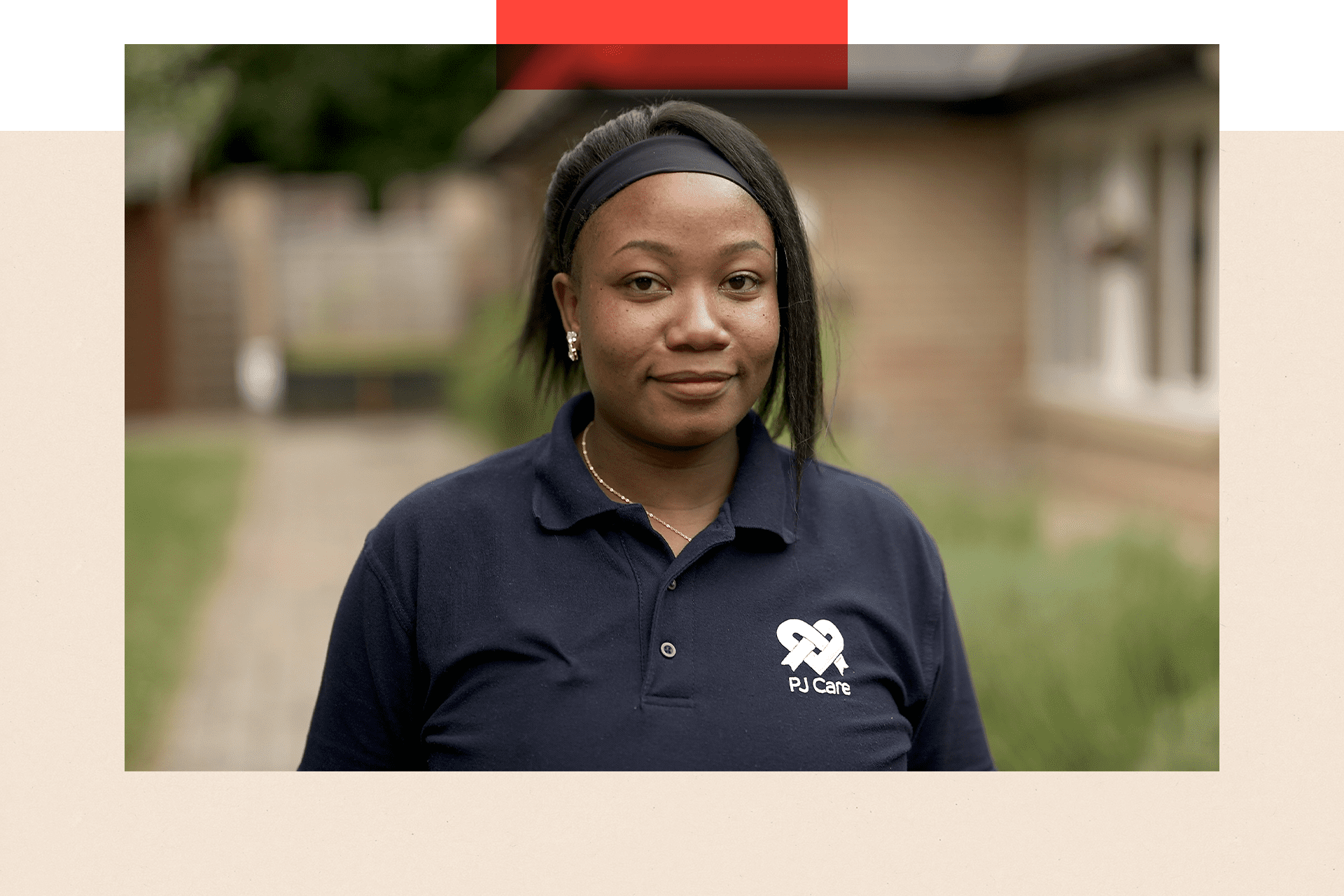
Rejoice is working but points out that there are some benefits she can't claim
She works full-time and pays taxes, but is keen to point out that she can’t claim some benefits, like free childcare. But Rejoice says she feels vital: “This country needs people like me, someone that can put their heart out there and help someone from the heart, giving their all.
“If we were to remove every migrant worker from this country, I think there would be a collapse in the health care system in this country.”
Set against this picture is a very public debate about small boats and illegal migration. Home Office figures show that in the 12 months until March, 38,000 people entered the UK illegally, the vast majority on small boats from France.
In conversations on the streets, there is not much distinction made between legal and illegal migration.
Just off Lincoln Road we are welcomed inside Peterborough Asylum and Refugee Community Association (Parca), which has been running for three decades. Asylum seekers Adil and Mohammed are having English lessons, and their English is very good.
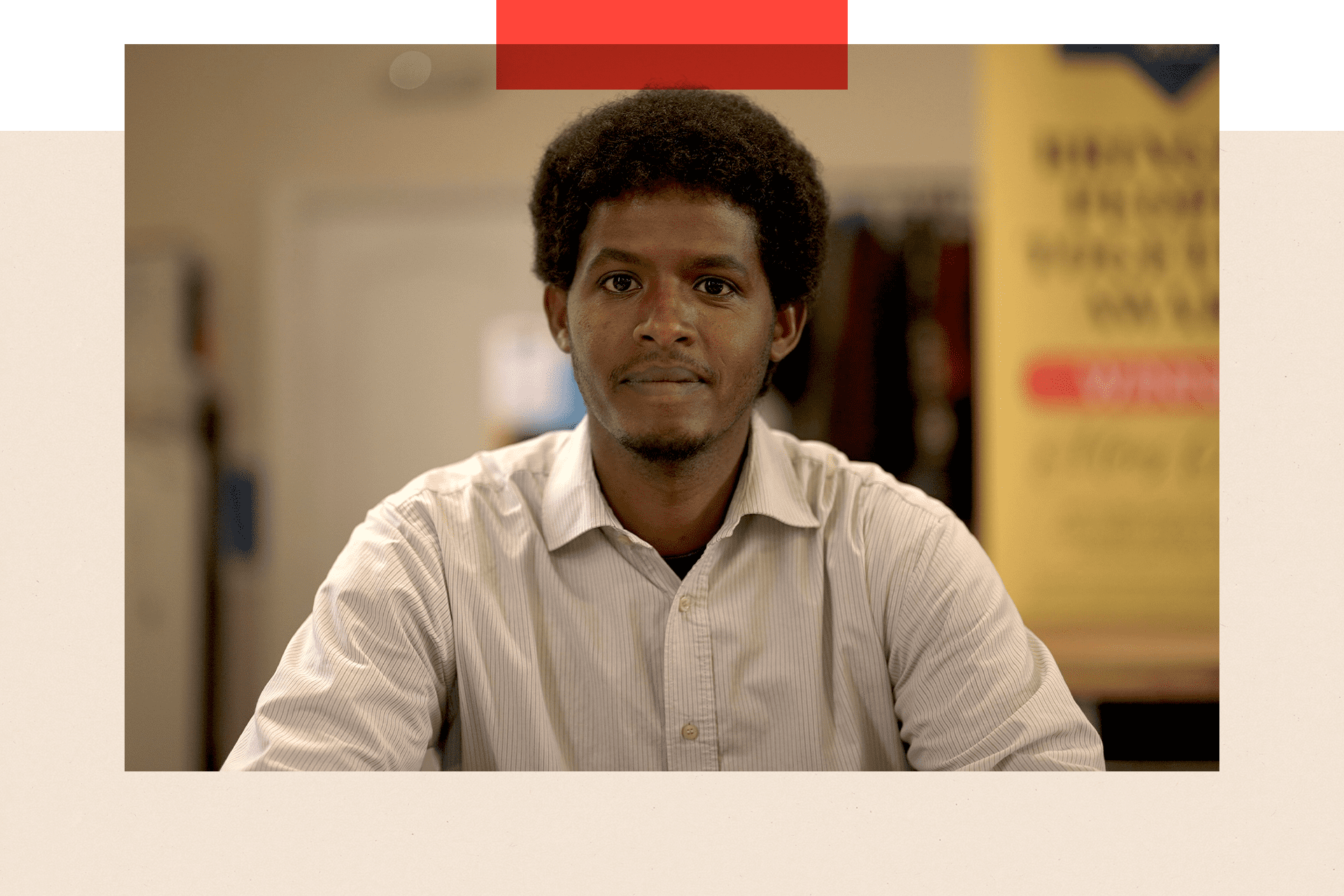
Adil believed he would not get any help in France
Both fled war in Sudan and describe a desperate journey to reach the UK, taking a small boat from Libya to Italy. Adil says 300 people left on the boat, but only 200 people arrived. “One hundred people dead,” he says quietly. “Women, children, young boys.” It’s hard to even imagine what that was like.
Why make another risky journey from Calais to the UK? Adil says it was because he believed he would not get any support in France.
Parca was set up by Moez Nathu, who was a refugee before finding sanctuary in Peterborough. He says migrants believe that when they get to the UK, “you get five-star hotels to sleep, you’ll get feeding by Home Office”.
While he wants refugees to be supported, he says it creates an impression that people arriving here will have an easy life. The answer, he believes, is to allow asylum seekers to work almost as soon as they arrive, sending a message that if you come to the UK, you will be expected to work.
There were 69,298 asylum applications for the year ending March 2024, relating to relating to 86,719 people. But the number of asylum cases awaiting an initial decision is higher - 86,460 cases, relating to 118,329 people.
And government figures from the same time said there were 104,517 individuals in receipt of asylum support, of which 34% were in hotel accommodation.
Just outside Parca, we find Irena delivering parcels. She’s originally from Latvia and says she works up to 60 hours a week. I jokingly ask what she would do if she were the next prime minister. “I would close the borders!” she says. It’s not the answer we expected.
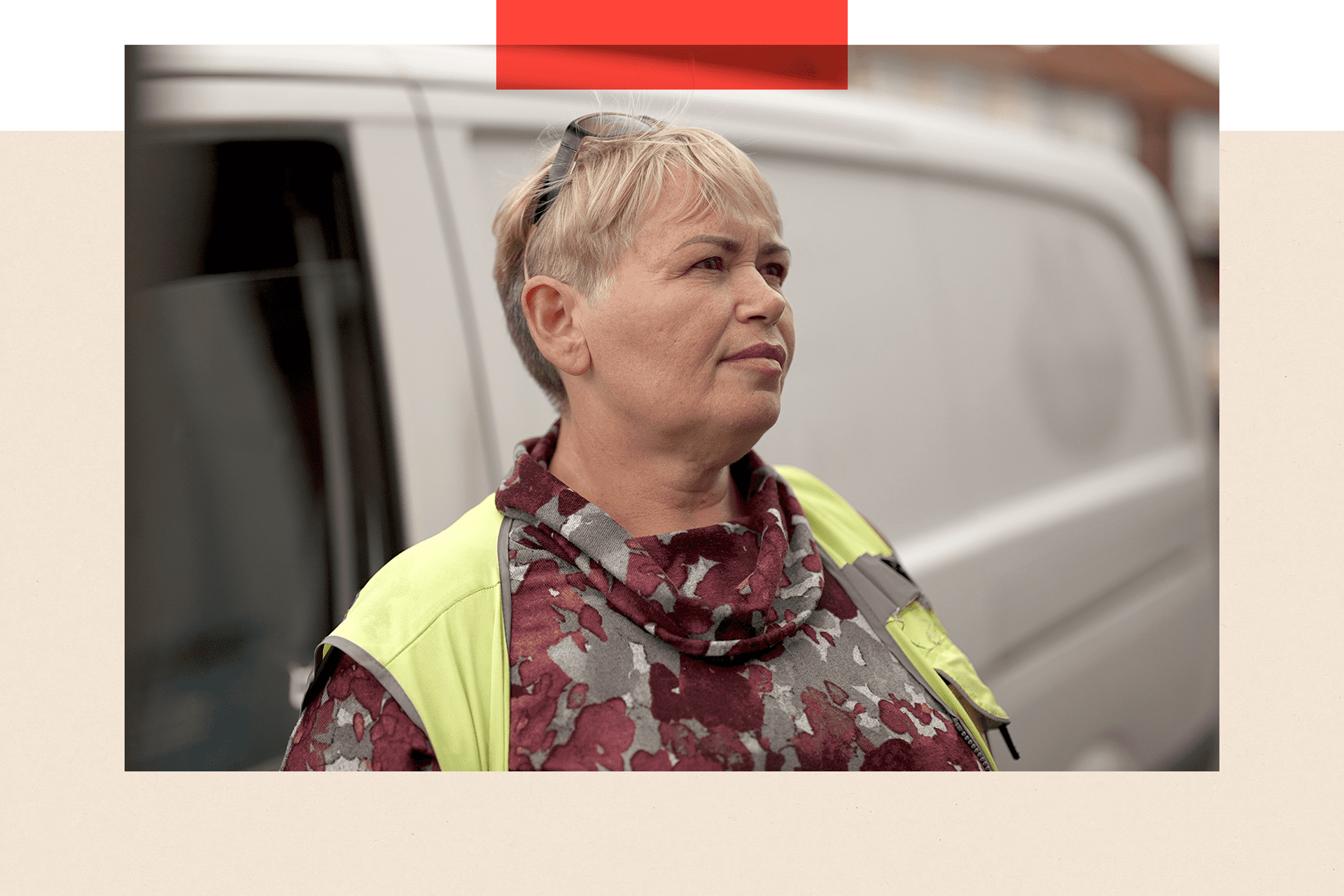
Irena works long hours delivering parcels
Irena arrived here 15 years ago, when the UK was part of the EU, and she’s now a British citizen and planning to vote in the general election.
It becomes clear her issue is illegal immigration. “I don't understand why France doesn't close the borders, why they let people risk their lives and cross the channel. If they say the first safe country is OK, why do you pass several safe countries and then England in the end. Why?”
Does she see any conflict between her own journey and her views now? “I'm working. I'm all the time working,” she says, adding that she never asked the state for anything.
Close by we speak to two men inside an eastern European cafe, they are from Peterborough and believe the change here has been for the better. They both point enthusiastically at the restaurants that line Lincoln Road. All of this, they say, would not have happened without immigration.
Rania Alia cofounded Helping Empower Lives in Peterborough. She’s originally from Egypt and is passionate about supporting the most vulnerable here and helping them settle in Britain.
She points to wider forces: “If you don’t want the refugee to come to this country, stop the war, make peace.”
And what of the argument that the country cannot cope with so many people arriving here? “I do not think the asylum, or refugee, is the reason for the crisis we are having,” before adding: “We have this because of Covid, the cost of living is getting very high - refugees don’t cause these problems.”
More from InDepth
Will there be more air travel chaos this summer?
- Published25 June 2024
Are renters a new electoral coalition?
- Published24 June 2024
Why aren't politicians talking about social care?
- Published23 June 2024
Rania is a reminder that by no means everyone in Peterborough feels the same about immigration, and what we did hear again and again were questions of what people saw as fairness - be it from Emma, who can’t get a council house, or from Rejoice who works, pays taxes but doesn’t always feel appreciated.
And for many we spoke to in the city, who were uneasy about the surge in net migration, there was also a widespread understanding that the services they rely on, from health to having parcels delivered, were dependent on the very same people coming from abroad.
The challenge for the parties is to convince voters that after long periods of large-scale migration, they have a credible plan to address the issues and concerns of voters.
And then for whoever wins the keys to No 10, the next challenge will be to deliver that vision.
BBC InDepth is the new home on the website and app for the best analysis and expertise from our top journalists. Under a distinctive new brand, we’ll bring you fresh perspectives that challenge assumptions, and deep reporting on the biggest issues to help you make sense of a complex world. And we’ll be showcasing thought-provoking content from across BBC Sounds and iPlayer too. We’re starting small but thinking big, and we want to know what you think - you can send us your feedback by clicking on the button below.
Get in touch
InDepth is the home for the best analysis from across BBC News. Tell us what you think.

